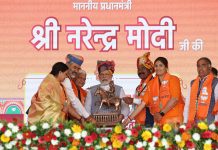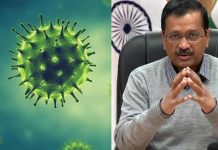 India has started talking about menstruation. Padman, a film about low cost and accessible sanitary napkins for all, had various celebrities posing with sanitary napkins on social media, normalising the discourse around it and urging to shed the stigma and myths around the same. It is not going to be an easy task. This was seen in the recent incident of cyber bullying of a young law student from Kerala after she posted a poem attacking taboos around menstruation.
India has started talking about menstruation. Padman, a film about low cost and accessible sanitary napkins for all, had various celebrities posing with sanitary napkins on social media, normalising the discourse around it and urging to shed the stigma and myths around the same. It is not going to be an easy task. This was seen in the recent incident of cyber bullying of a young law student from Kerala after she posted a poem attacking taboos around menstruation.
Stigmas around menstruation go beyond denying entry to women in temples. They pervade their daily lives. Women on their periods are often not allowed to enter kitchens, worship rooms or even step outside their homes. They are not allowed to touch certain foods and many of their routine activities are simply hampered or barred.
The situation is much worse in rural India, where apart from stigmas women face the additional discomfort associated with lack of sanitary products. Low cost sanitary napkins are supposed to be procured from Accredited Social Health Activists or ASHAs, but more often than not, they are unavailable. Even if they are available, these
are of poor quality, necessitating either expensive purchases from the market of better quality napkins or forcing women to use old rags and cloth. The latter is often unsanitary and causes infections and pain.
This compounds the already restricted mobility of rural girls. If the girl gets her period in school there is seldom any facility for sanitary products or equipped toilets. In fact, inconvenience around periods becomes one of the major causes of school absenteeism among young girls and their eventual drop out. An FSG report states that the
percentage of out-of-school boys and girls in the age group of 6–10 years was 5.51 per cent and 6.87 per cent respectively; however, for the adolescent age group of 11–13 years, the percentage of out-of-school children was much higher among girls (10.03 per cent) than boys (6.46 per cent). Thus, stigma and lack of sanitary products to ease the menstruating girl not just impacts her health and well being but also her education in the long run.
In recognition of menstrual health and hygiene as a major health issue for adolescent girls and women, the state has been mandating programmes and guidelines. The Ministry of Women and Child Development has been training
anganwadis for generating demand of sanitary napkins and aims to make these available in schools and shelter homes. National Adolescent Health Strategy or Rashtriya Kishor Swasthya Karyakram (RKSK)) has included menstrual health and education as part of package of health services to all adolescents.
Menstrual Hygiene Management: National Guidelines (2015) have been prepared by the Ministry of Drinking Water and Sanitation. This document has attempted to develop a framework for access to knowledge and information regarding menstrual products. It also aims to generate societal, familial and community awareness and informed and trained support for girls. For this it intends to train at the state level (departments of health, education and Panchayati Raj), district and block level (health workers, teachers) and schools. The guidelines aspire to help secure dignity of girls and help them stay in school.
Yet in reality the situation remains dismal. According to UNICEF, around 90 per cent of women are unaware of the importance of using sanitary napkins, 87 per cent continue to use old pieces of cloth as absorbents, with the result
being that 79 per cent suffer from low confidence, 60 per cent miss school and 44 per cent feel humiliated. According to FSG report, there are over 355 million menstruating women and girls in India. However, 71 per cent reported having no knowledge of menstruation before their first period and while mothers remain the first source of information and support, almost 70 per cent of mothers considered menstruation dirty. Almost 88 per cent of women used home-made alternatives such as old cloth, rags or sand and ash. Either quality commercial products are unaffordable or not consistently accessible for women and girls in low-income communities. Moreover, there
are 63 million adolescent girls living in homes without toilets and thus lack appropriate facilities and community support to manage their menstruation privately and in a safe manner.
Prioritising menstrual health and hygiene for women will necessitate a shift in the way women’s health is perceived in policy discourse. Often, most women’s health programmes are centred on their reproductive years – reproduction, childbirth and subsequent mother and child health care. This is also important since indicators of maternal health are unfortunately poor. However, this can end up discounting the health needs of the vast majority of adolescent girls and postmenopausal women.
The issue of menstruation becomes even more complicated since it is not just a health issue, but an issue shrouded in secrecy and stigma. When notions of purity and pollution get associated with menstruation, it leads to further marginalisation of an underserved subject. It leads to myths and taboos and prevents young girls and women from realising their full potential. Normalising ‘period talk’ has started and will no doubt be impactful in the long run, yet at the moment it seems limited to urban spaces and social media. To reach vast majority of rural India, extensive dialogue and campaign to address stigma and give health and hygiene information will need to be undertaken. Communities and local influencers should be involved for IEC activities.
The good news is that apart from government, civil society and NGOs have also started becoming active in contributing to this important subject. For instance, Goonj, an NGO, produces napkins from simple, reusable pieces of cloth under ‘Not Just a Piece of Cloth Programme’. Water Aid India, besides ensuring access to products, provides information about the same and involves multiple stakeholders in the dialogue. WASH United India addresses
hygiene through ‘Menstrual Hygiene Day’ and ‘The Great WASH Yatra’. Menstrupedia is a for-profit enterprise that has aimed to tackle awareness by developing a comic book adapted to local contexts. On the part of the state, most vital will be improving access to free or affordable and good quality sanitary products for all women. This will
ensure equity and better educational opportunities for them. Poverty, want of information, and lack of
access should not impede menstrual health and hygiene.
Dr Swati Saxena is a researcher at a non-profit. She has a PhD in Public Health from University of London and a MPhil in Development Studies from the University of Oxford. The views expressed are her own
letters@tehelka.com












